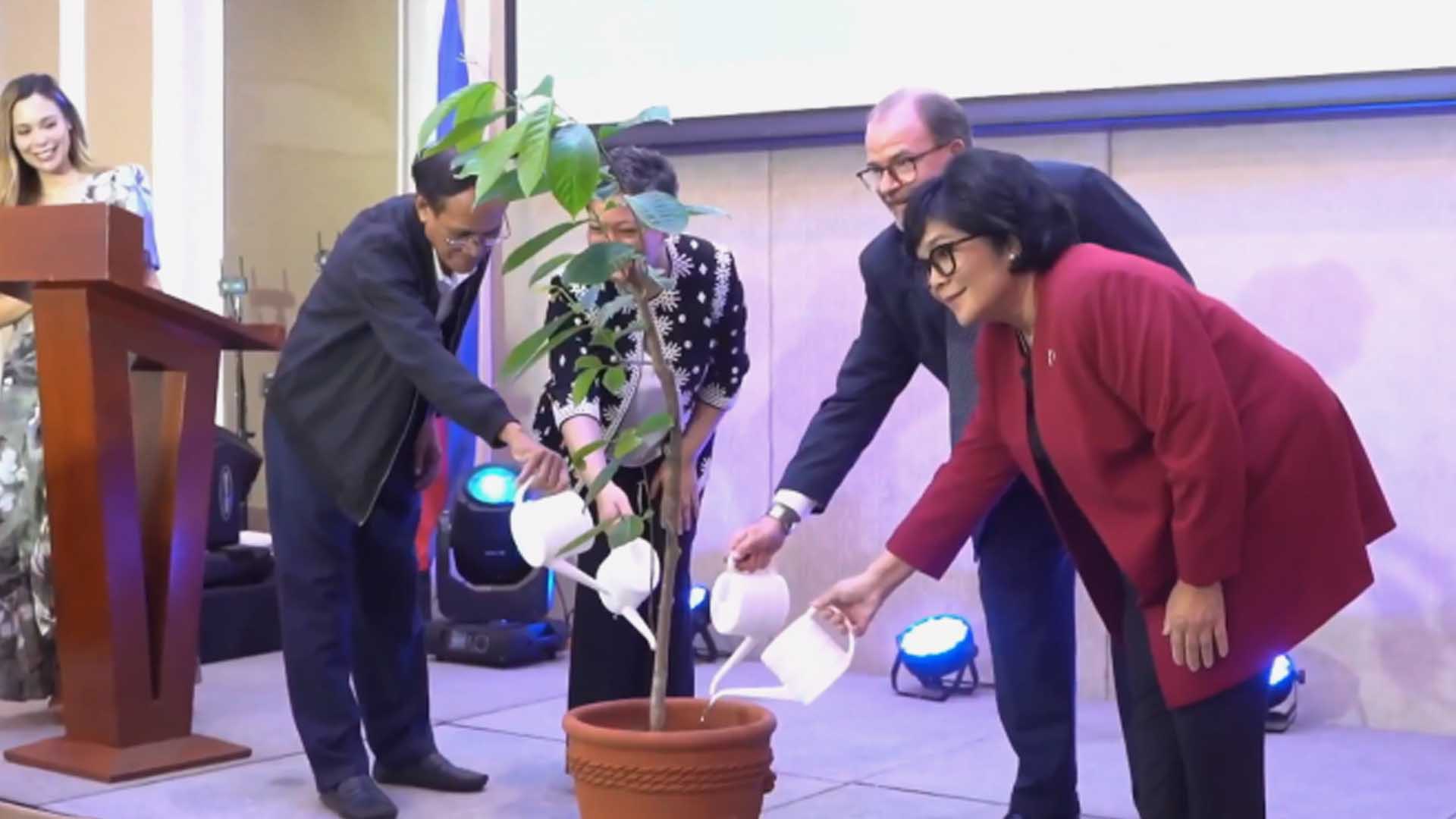The Philippines, through the Forest Foundation Philippines (FFP), has partnered with the government of Canada to find nature-based solutions for adapting to climate change.
During the program launch of the Philippines-Canada Partnership on Nature-based Solutions for Climate Adaptation (PCP4NbS) in Makati City on Thursday, Department of Environment and Natural Resources Secretary Maria Antonia Yulo-Loyzaga cited the critical and urgent need to build capacity for adaptation.
She said the partnership will help strengthen the resilience of Filipinos, especially rural and indigenous women, against the impacts of the interconnected crisis due to the impact of climate change, loss of biodiversity, degradation and diminishing of the green and blue forests, and pollution, on the resilience and sustainability of the country.
It will also includes the sharing of knowledge, expertise, and resources in assessing protected areas and in applying science and new tools to ensure ecological integrity.
“What decades of use, misuse, neglect, and disruption have done cannot be recovered in months. But with honest, respectful, and evidence-informed partnerships like these, we remain undaunted at the DENR,” Loyzaga said.
“These allow the DENR in this administration to know where to start and what must be done to protect our vast office –that is – 30 million hectares of land, 15 million hectares of classified forests, over 7 million hectares of protected areas, 36,000 kilometers of coastline and 2.2 (million) square kilometers of territorial seas,” she added.
Loyzaga said that while mitigation has been strategic for climate-vulnerable countries like the Philippines, there is still an urgent need to build capacity for adaptation.
Loyzaga said the Philippine government has presented the completion of the National Adaptation Plan (NAP) at the 28th Conference of Parties of the United Nations Framework Convention on Climate Change (UN FCCC).
She explained that based on the NAP, inaction on adaptation within the 2030 decade is estimated to cost around PHP1.4 trillion, or about 8 percent of 2020 gross domestic product.
“Nature-based solutions are critical to our arsenal and must be rooted in the best available science as well as indigenous and local knowledge. Scaling up is part of the thematic areas that we address in the NAP, and this particular project is well within those areas,” Loyzaga added.
With these initiatives, she expressed optimism toward the protection and rehabilitation of biodiversity, critical habitats, and ecosystems amidst the impending climate hazards and the climate vulnerability of communities.
Meanwhile, the DENR has taken a whole-of-government approach in crafting new evidence-informed plans on adaptation and has shifted towards building new non-traditional whole-of-society approaches to solutions.
Loyzaga said that with the partnership, she looks forward to targeting three wins: biodiversity conservation, climate change adaptation, gender equality, and the resilience of communities in the context of natural resource management. (PNA)







